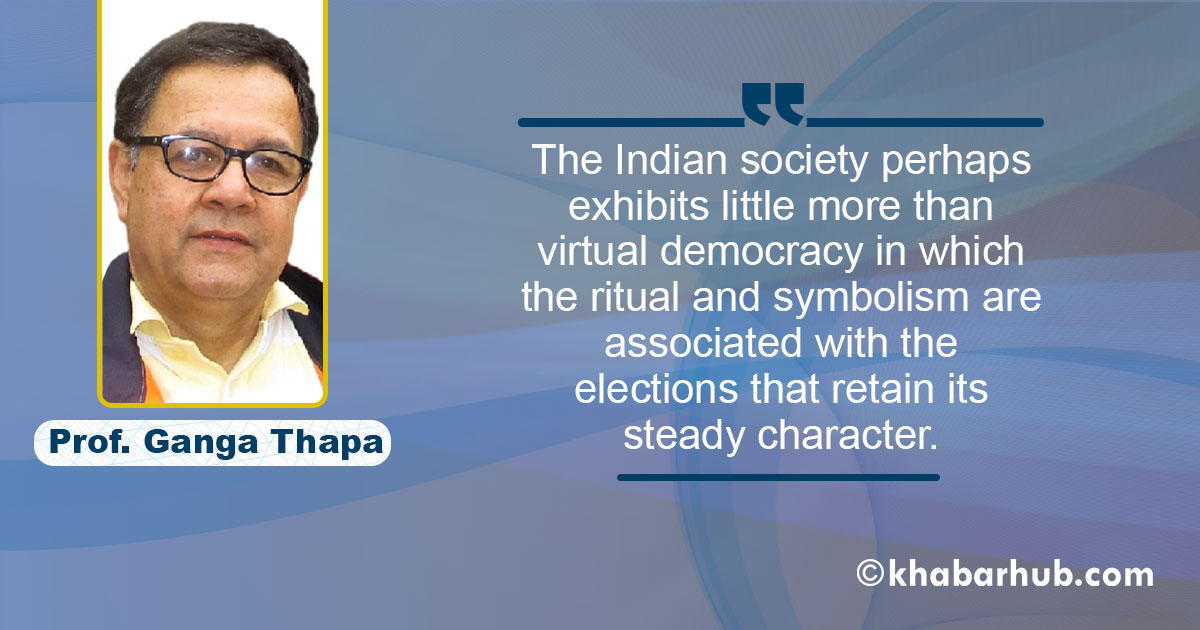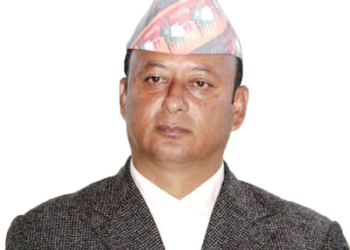Evidently, as we have observed, robust democracies are extremely difficult to be overturned. We cannot say whether economic development consistently increases the people’s trust in a political system, but it does affect the success of the transition processes. It is well known that democracy allows citizens to evict the politicians, sooner or later, who have hurt the economy, which is so essential for an effective and efficient` government.
A second and complementary set of arguments focuses on the political pluralism which feeds the participative mentality that greatly increases the circulation of information which is conducive to influence the state policy with a wide scope for fostering civil liberties and basic freedoms.
From the economic viewpoint, Guan Zhong, an ancient Chinese savant, once stated that the people learn to behave with good manners only when they have sufficient clothing and food. This expression is more commonly translated as ‘well fed, well bred.’ His words mean that people won’t have time to think of good manners if they are lacking food, and clothing.
It is generally believed that economic success strongly contributes to consolidate democracy and sustainability in the socioeconomic realm. But, economic growth alone is not enough. There is a view that democratic transitions are not driven by the redistributive demands of the poor. This pattern is evident in South Asia. It would be more helpful if we consider the two transitions – economic and political – as different from one another yet progressing simultaneously.
In a sense, rapid economic growth by itself may not bring political stability on its own, unless political institutions are also allowed to develop and mature rapidly as well. Let us take the example of India which runs democratic politics even when the country is plagued by widespread poverty, social inequality, exclusion, and marginality that cannot assure ordinary citizens could indeed partake in decision-making electing the candidates for political office of their choice and scrutinize effectively the process of political accountability and prevent democracy from degenerating into ‘delegative dictatorship.’
The Indian society perhaps exhibits little more than virtual democracy in which the ritual and symbolism are associated with the elections that retain its steady character; else, it would suffer from a variety of problems and skepticism with respect to the institutions of representative democracy, including tolerance judgments that continue to lead toward potential impact which may be just as striking.
Mary Albino claims an average Indian takes home just US$1100; 42 percent of its vast population, i.e. some 475 million Indians are living on less than $1.25 per day. Some even argue that 60 percent of the people are living below the poverty line. India, indeed, is home to more poor people than any other country in the world.[1] The examples may go on. On an institutional level, consolidating a stable and vigorous democracy includes establishing viable institutions that are capable of responding to aggregate social demands, especially those among the most neglected sectors of the population.
In recent times, some have argued that democracy in India had emerged as a product of Indian nationalism and nationalist leadership’s commitment to liberal democracy and self-rule that left little room to motivate the citizens and foster conditions conducive to change driven by such linear measures as positive impact on political stability, further increase in political rights, which also included the strengthening of human rights, reforming the inefficient institutions and reinforcing the commitment to secularism that still suffers from a variety of problems that continue to limit the potential impact, which in turn has a positive impact on the level of wealth at which citizens’ latent preferences for democracy are expressed.
In the heyday of Nehruvian activism, Indian foreign policy promoted a number of principled ideas of policy-motivated programs with due regard to prevailing norms, sentiments, political culture, and ethics that attracted scholarly attention. What has appeared in the recent decades need not be surprising; for the importance of winning an office by selectively targeting certain types of people might be more appropriately termed as misperceived public opinion which is seldom rational. India is a case where the democratic rule in the past seven decades is praised for the fact that the power changed hands peacefully from one political party to another, most of the elections were judged as free, fair, and consistent with the norms of public opinion and electoral politics.
(To be continued)
Views expressed in this article are the author’s own and do not necessarily reflect the stance of Khabarhub.









Comment